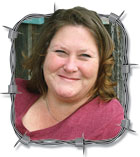I read a little something recently that made me chuckle. A farmer in England found a note tacked to the fence of one of his fields. It was from a new neighbor.
The note asked the farmer not to spread fertilizer on the fields because it smelled and she could not open the windows of her home. The new neighbor insisted there be no fertilizer spread because she would be hosting a rather large garden party to celebrate her upcoming birthday, and the fertilizer would ruin her special day. She ended her written rant with a threat to call the Environmental Agency if the farmer spread more fertilizer.
It would have been game on for me. I would, in fact, wait until I heard a chorus of “Happy birthday to you” to fire up the spreader and see how fast folks could clear out of a garden party. I might even gift the neighbor a couple of peacocks for her birthday to enjoy in her garden. Peacocks can fancy up anything and are fun for everyone.
While the situation between the English farmer and his new neighbor may make us chuckle, cases such as this are not unheard of. In the same story, another farmer who raised chickens said his new neighbors threatened action against him because the clucking of the hens was causing a disturbance. There are also similar issues in the U.S., and in the Ozarks.
As more and more people decide to leave the urban areas and move to the “country,” they bring their assumptions of how things should be in the rural area, and do not like it when their little dream world gets a dose of real life.
For several years, I lived next to a large dairy farm. The house had no air conditioning, but I seldom had the windows open, not because of the dairy air but because of the dust created by the dirt road next to the house. The dust was unbearable, leaving a thick cost on everything. You could be outside and feel the grit on your skin as dust clouds flew through the air. I knew the road was there when I moved in, so I had to adapt. Folks moving to the country know they are moving into a farming area, so what do they expect?
It’s not always city folks moving to the rural area that can cause feathers to get ruffled.
Many years ago, I covered a story where a family was facing fines in municipal court because their neighbor claimed they could hear the family’s two goats, which caused them undo stress. Both properties butted against a busy interstate highway, but the neighbor complained about two small goats. The neighbor called animal control almost daily to complain about goat noises coming from across the tall, wooden privacy fence.
The neighborhood dispute escalated to the point it was brought before the city council because, according to city ordinances, it was not illegal to have livestock in the city limits, which shocked both the neighbor and several members of the city council. Thanks to annexation many decades ago, a dairy farm was partially inside the city limits, as were several acres of pastureland.
The nosy neighbor’s mission to get the goats out of town didn’t work, and to this day, city residents can still own livestock within the city limits. In a bit of irony, during the course of calling animal control multiple times, it was discovered the neighbor had more dogs than allowed by city ordinance. They had to find a new home for a dog or face a fine.
Farming and ranching in any form can be noisy and it can have an odor to it, but when people call farming practices nuisances, it shows how disconnected they are from reality.
I would hate to live in a dream world without farms. I don’t see how they can be dream worlds if everyone is hungry. Sounds more like a nightmare.
Julie Turner-Crawford is a native of Dallas County, Mo., where she grew up on her family’s farm. She is a graduate of Missouri State University. To contact Julie, call 1-866-532-1960 or by email at [email protected].







